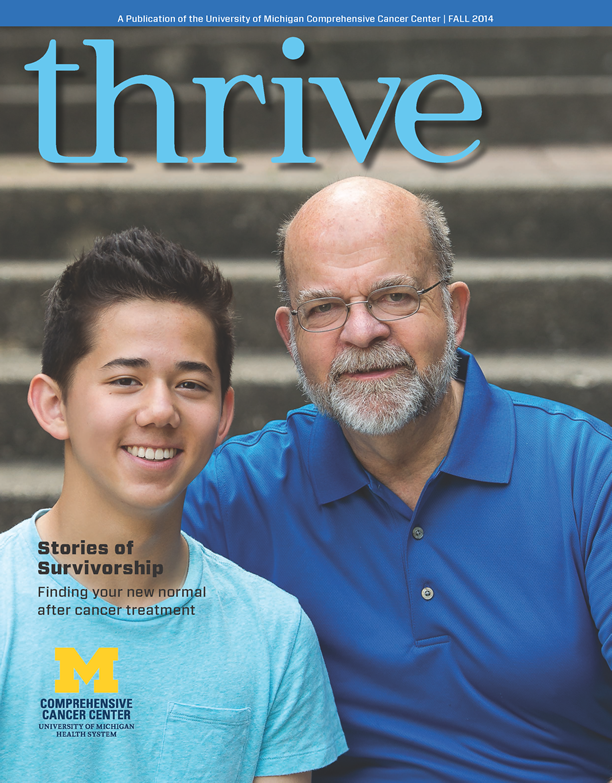Fall, 2014

The Rogel Cancer Center receives many questions about influenza during flu season, especially about how flu can affect treatment and whether patients should get a flu vaccine.
Cancer researchers are looking for ways to understand advanced cancers in order to give patients personalized options for treatment. And, the more researchers understand individual cancerous tumors and how they change over time, the sooner new treatments can be developed.
To ensure that Rogel Cancer Center patients are informed and prepared for home-related treatment, the Rogel Cancer Center Education Clinic houses five nurse educators who meet with patients one-on-one to discuss treatment plans and any home care that’s required.
Yoga had been a part of Flora Migyanka’s life for years, but after she was diagnosed with breast cancer and had a double mastectomy, yoga became her go-to therapy for relieving stress and pain.
Getting -- or sharing -- the news of a cancer diagnosis is one of the most difficult experiences anyone can go through. While it is different if you're the doctor, the patient or the caregiver, open and honest communication is the key to helping each other make the best decisions.
All cancer patients look forward to the day when they are done with treatment and firmly a survivor. But for many, the experience of cancer -- both emotionally and physically -- lingers long after treatment ends.
The media is ripe with new ways to prevent cancer through "super" foods, but often these recommendations are based on a single promising study and lack sufficient evidence to support the claims with confidence. A recent article in the Journal of the American College of Nutrition released diet recommendations for the prevention of cancer based on a review of many studies.
